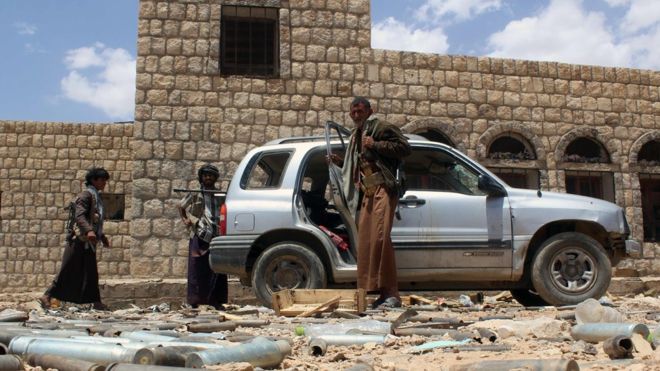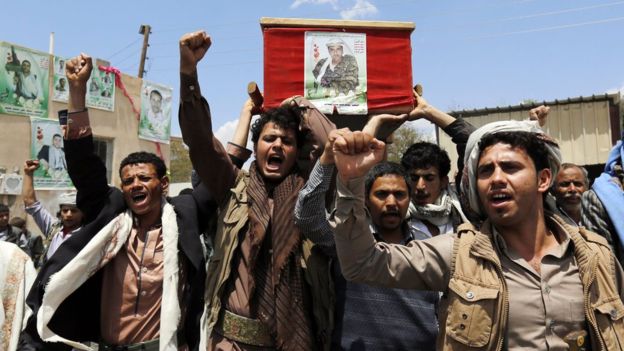Both sides ‘will respect’ Yemen truce

The Saudi-led coalition supporting government forces in Yemen has said it will respect a UN-backed ceasefire which came into force on Monday.
Iranian-allied Houthi rebels who are trying to overthrow the government have said they will also respect the truce.
More than 6,000 people have been killed and 2m displaced in more than a year of fighting between the two sides.
Negotiations on ending the conflict are due to be held later this month in Kuwait.
The UN special envoy to Yemen, Ismail Ould Cheikh Ahmed, welcomed the ceasefire, calling it "critical, urgent and much needed".
"Yemen cannot afford the loss of more lives," Mr Ahmed added.
He said the agreement for cessation of hostilities included commitments to unhindered access for humanitarian supplies and personnel to all parts of the country.
Torn in two: Yemen divided
The Saudi-led coalition issued a statement saying it was "going to respect a ceasefire… at the demand of President [Abdrabbuh Mansour] Hadi but reserves the right to respond" to any rebel attacks.
A spokesman for the Houthis said the rebels would also respond to any attacks on their forces.
A further 20 people were reportedly killed in clashes on Sunday, hours before the truce was due to come into effect.
Previous UN-sponsored negotiations have failed to make progress and a ceasefire last December was abandoned after repeated violations.
On Saturday, President Hadi said he was taking the Kuwait negotiations seriously.
But he insisted the Houthis agree to abide by a UN Security Council resolution, calling from their withdrawal from seized territory and disarmament.
The Houthis — backed by former President Ali Abdullah Saleh and supported by Iran — took over the capital Sanaa and much of the west of the country in 2014.
Why is there fighting in Yemen?
Northern Shia Muslim rebels known as Houthis, backed by forces loyal to Yemen's ex-president, took over parts of Yemen, including the capital, Sanaa, and forced the government into exile in March 2015
The rebels accused the government of corruption and of planning to marginalise their heartland within a proposed federal system
Forces loyal to the government and Southern militias, aided by Saudi-led coalition air strikes and troops, have since regained control of five southern provinces
Политика конфиденциальности | Правила пользования сайтом








